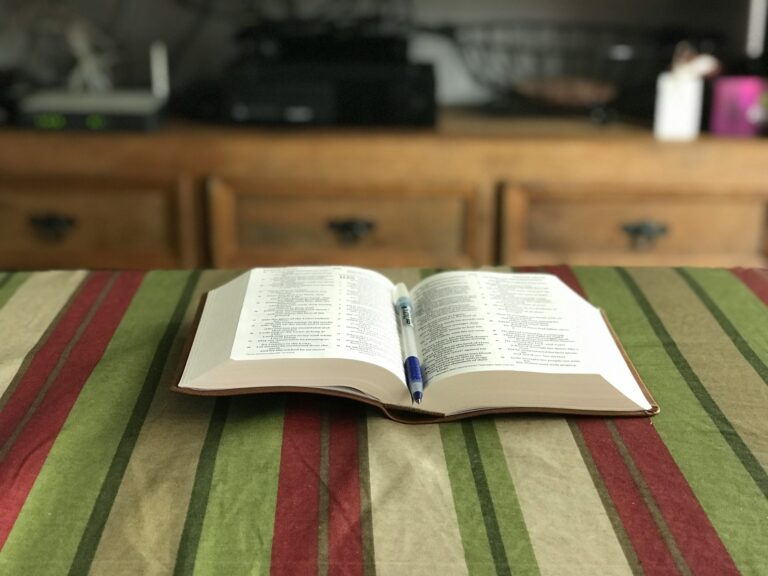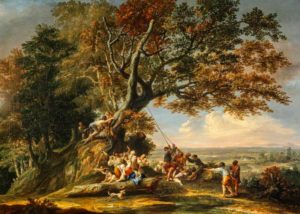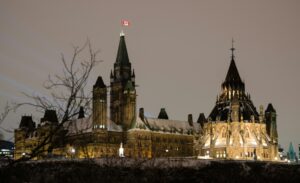For 28 years, I had the privilege of serving with a group of godly elders. A strong bond in Christ was forged with each of them as we partnered in the gospel together. I recall that about 3 years into my ministry I was asking, ‘What are elders called to do? What should be on our agenda when we meet?’ I’ve learned many churches ask the same questions.
At that point our elders dug into Scripture to have a better understanding of our calling.
I found our meetings were often inundated with agenda items that seemed to be more operational in nature such as the church finances or the details about an upcoming event. We could talk at length about people but never discussed moving the church forward or we could move the church forward but neglect some people in crisis. We intended to end every meeting with a season of prayer but found ourselves exhausted by the late hour.
God emphasizes the character traits He is looking for in an elder because an elder represents Him before the church and the world.
Passages in Timothy, Titus, and Peter clearly outline the character standards required for eldership. God’s high calling for an elder’s character is clear. Given that there is no sample elder meeting agenda in Scripture, what can seem ambiguous is what the elders are called to do when they meet. What is the job description of an elder or of an elder’s board?
Elders Throughout Scripture
The idea of a governing body known as elders wasn’t introduced with the birth of the church. Elders were key leaders in Israel’s history, in the Gospels, the Book of Acts, and are also prominent in the book of Revelation.
The tribes of Israel were composed of clans that an elder would give oversight to. The elders would govern and represent their clan (Exod. 3:16-17, 17:5-7, 18:9-12). Elders played a crucial role in the establishment of David’s throne (2 Sam. 3:17-18, 5:3, 17:15, 19:11-12) and were represented at the consecration of the Temple (1 Kings 8:1-5). Elders are present during and after the exile (Ezek. 8:1, 14:1, 20:1-3; Ezra 10:16).
The ruling elders of Israel are mentioned in the gospels and in the book of Acts (Matt. 16:21, 21:23, 26:47-59; Mark 8:31, 11:27-28; Acts 4:5-12, 4:23, 6:12, 23:14).
Elders are also mentioned in Revelation where they have some level of authority (Rev. 4:4-11, 5:5-8, 7:11-13, 11:16, 14:3, 19:4).
Six Responsibilities of Elders
God has gifted His church with elders. Scripture outlines the qualifications, characteristics, and responsibilities of an elder.
The role and responsibilities of elders can be easily diminished. Elders can be chosen according to their popularity, income level, business expertise, or influence instead of the biblical qualifications God has given us. As God is concerned with the spiritual wellbeing of His church, He is concerned with the character of the leaders who will govern His church.
God emphasizes the character traits He is looking for in an elder because an elder represents Him before the church and the world. Character can be easily overlooked when a church is desperate for leadership. Because God is concerned with His integrity and glory, character is of utmost importance.
In the following, I will outline six responsibilities for elders in the church. As the first two responsibilities are often given attention, I will focus most of my time on the other four.
1. The Responsibility of Christlikeness
The emphasis on character highlights that God requires elders be men who are passionate about their relationship with Him and are growing in their faith. Elders intentionally pursue holiness as they live lives of integrity before others (1 Timothy 3:3-7; Titus 1:5-8).
2. The Responsibility of Family
An elder must manage his own family well. God has called elders to care for the emotional, physical, and spiritual wellbeing of their family. An elder’s family is his God given priority. In prioritizing his family, he is to have an undivided heart by being faithful to his wife (1 Timothy 3:1-5; Titus 1:5-6)
3. The Responsibility of Oversight
The elders are called to oversee and direct the affairs of the church which is why they are sometimes referred to as ‘overseers.’ (Acts 20:17-38; 1 Tim. 5:17). Oversight is the ability to prayerfully discern the totality of the church, in all it encompasses, including God’s direction for that body of believers. Although some elders will be passionate about missions, or youth ministry or small groups, an elder must be able to see the church as a whole and not simply the various components. They come to prayerfully discern God’s will for the entire church and not simply part of the church. Elders need to see the ‘big picture’ and understand how the various components fit together.
We often don’t consider how adding resources (finances or volunteers) to one ministry will impact another or how asking the whole church to support one endeavor (with time or resources) means we can’t ask them to support a dozen endeavors (I have been a guest at churches where during the announcements the congregation is asked to show up the next 3 out of 4 Saturdays for events that have been planned – few schedules allow for such availability). Elders need to prayerfully discern what God is calling the congregation to.
The elders set the mission and vision of the church, asking God what He wants to accomplish. They then lead the church in the direction the Lord is asking the church to move in. Elders can’t come to a meeting concerned about how well their child or youth is connected to the children’s or youth ministry. There is a place for that, but when an elder comes with his or his family’s personal good or agenda at the forefront, they are serving themselves and not God’s family (though often they blindly think, if this is true for my child/youth, it’s true for everyone).
Oversight includes developing evangelistic and discipleship pathways that prayerfully discern whether the ministries of the church are subservient to those pathways. As God is at work in the lives of unbelievers, our churches need to evaluate the available opportunities for their engagement and as believers are growing in their faith the elders are responsible for the ministries that serve to help young believers mature.
Elders must wisely navigate and lead the church through the tumultuous cultural times we are in. They are the overseers of the church.
4. The Responsibility of Shepherding
Shepherding is a key responsibility for elders (Acts 20:17-38; 1 Pet. 5:1-4). Elders are called to guard, feed, lead, and care for the flock God has placed in their care. There are those both without and within the church who want to distort the truth and devour the flock. Elders are called to protect their flock.
Life is hard. All of us face disease and death (either personally or with those we love). Temptation is continually enticing us to indulge. Elders need to have a pulse on the members of their church. They should know who is growing spiritually as well as who is struggling. We need to rejoice with those who rejoice and mourn with those who mourn (Rom. 12:5).
Alongside of the discipleship pathway that assists young believers mature in their faith the elders should be discerning who the emerging leaders are in their congregation and invite them into an intentional leadership pathway that develops their spiritual gifts and leadership skills.
A component of shepherding will be enacting church discipline where we are restoring a member who is trapped in sin (Galatians 6:1-2) or rebuking or correcting a member who refuses to repent (Matthew 18:15-17), so that they will turn from sin to the hope we have in Christ.
The elders must contemplate how the members of the congregation are pouring into each other’s lives in the way they care for each other, encourage each other, instruct each other, love each other, and demonstrate hospitality with each other. Shepherding the flock is a crucial responsibility.
5. The Responsibility of Doctrinal Purity
Elders are called to clearly declare and teach sound doctrine while correcting, rebuking, and refuting false doctrine (Acts 20:30-31; 1 Tim. 5:17; Titus 1:9-16).
Elders need to point believers to the firm and unchanging truths found in the saving knowledge of the gospel of Jesus Christ. Elders protect their flock by guarding them from false doctrine. Those who lead the flock astray with their false doctrine need to be silenced by the elders. Biblical insight, courage and strength are needed to refute them.
Elders need to feed the flock entrusted to them. Digesting the Word of God is an essential component of an elder’s day. He needs to be fed in order to feed. Elders immersed in the Word will be prepared to share God’s insights with others. Everything in a church must be measured by the standard of God’s Word.
Elders must discern when what is being taught is sound doctrine, a disputable matter, unsound doctrine, or heresy and teach and respond appropriately.
Teaching sound doctrine will encourage God’s sheep to pursue His purpose for their lives.
6. The Responsibility of Prayer
The elders of the church are called to a ministry of prayer (Acts 6:1–4). Each member in the church needs prayer. Prayer should be a central component of our individual lives, our meetings, and our time together.
We need to make the time to pray as prayer is easily neglected. We can’t change a life or move a mountain, so we come before the God who can.
God has granted us elders to serve and lead His church.
In my ministry, the elders often met twice a month. One meeting focused on the areas of oversight, shepherding, and doctrine while the other meeting focused on prayer. We prayed for each other, our families and the church while reading Scripture throughout the meeting. Elders took turns leading the prayer gatherings.
James reminds us in chapter five that the elders have a ministry to pray for the sick in our midst. This is an endearing ministry the Lord has called his elders to on behalf of His people.
Being fully dependent on God in this spiritual war, is a critical component of leadership knowing that He can do more than anything we ask or imagine.
Three Practical Notes
Beyond the above responsibilities, here are three things that I have found helpful in working with elders and discerning our time together:
- Evaluate whether your elder’s agenda is balanced between oversight, shepherding, doctrine, and prayer. Before the meeting, the chair of the elders should assign every agenda item to one of the responsibilities, as well as an allotment of time. This helps to ensure time is spent on every area of responsibility. There will be seasons that will necessitate your agenda focuses on one area of responsibility more than another. Allowing it to only last for a season is essential.
- Ensure your elders spend time ministering to each other and caring for each other’s families. This is where meeting beforehand for dinner or more than once a month is critical. Shepherd and pray for each other.
- Recognize that not every elder is going to be equally passionate or gifted in the areas of oversight, shepherding, doctrine, and prayer. I’ve found an elder is typically exceptionally gifted in two of the four areas which means when the elders of your congregation are looking for new elders you want to ensure you have men who are passionate and gifted in each of the four areas so you can lead your church in oversight, shepherding, doctrine, and prayer. Keeping a skills inventory of which elders are gifted in each area will be helpful.
God has granted us elders to serve and lead His church. They are given the responsibilities of oversight, shepherding, doctrinal purity, and prayer for their church family. May the conversations your elders engage in reflect the responsibilities He has given you for your congregation, so that He will be glorified, and they will mature in their faith.
























